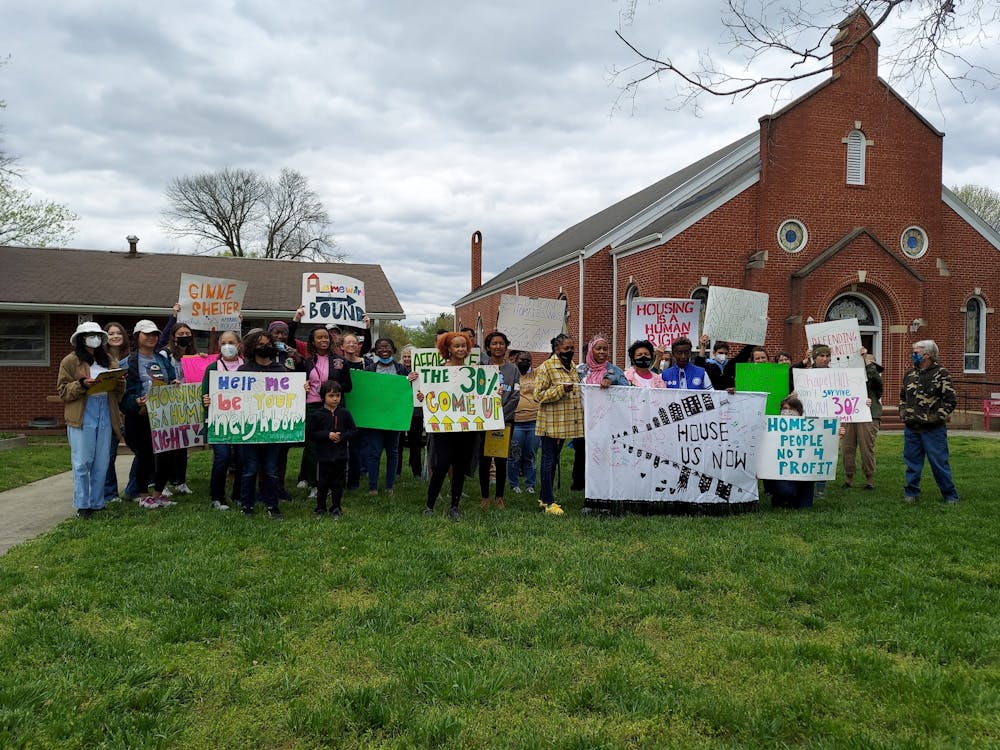Demonstrators gathered at the Peace and Justice Plaza in downtown Chapel Hill on Saturday to bring attention to the town’s lack of affordable housing.
The “House Us Now” march, organized by a coalition of local nonprofit organizations, drew around 100 participants.
The group marched down Franklin Street to the Marian Cheek Jackson Center on West Rosemary Street, in hopes of constructing affordable housing units for people who make less than 30 percent of the area median income. In Chapel Hill, the AMI is about $22,500 per year.
March leader Yvette Mathews is the office and community organizer of the Chapel Hill branch of the Community Empowerment Fund, a local nonprofit dedicated to alleviating homelessness and poverty.
Matthews said Chapel Hill does not provide enough housing for individuals living on or under 30 percent AMI. Kristina Smith, program coordinator, said the housing that currently exists is too expensive for these residents, and mostly luxury apartments are under construction.
She said those who earn minimum wage or live on disability checks are especially affected by the housing shortage.
"The people that are not being serviced are the people that service people every day," she said. "We're talking about waitresses, people who work in restaurants. We're talking about low-income people."
When Quinton Harper, a voting rights advocate and manager at the Inter-Faith Council for Social Service, moved to Carrboro 12 years ago, his rent was $550 dollars per month.
Since then, it has risen to $1000. His story is not unique.




